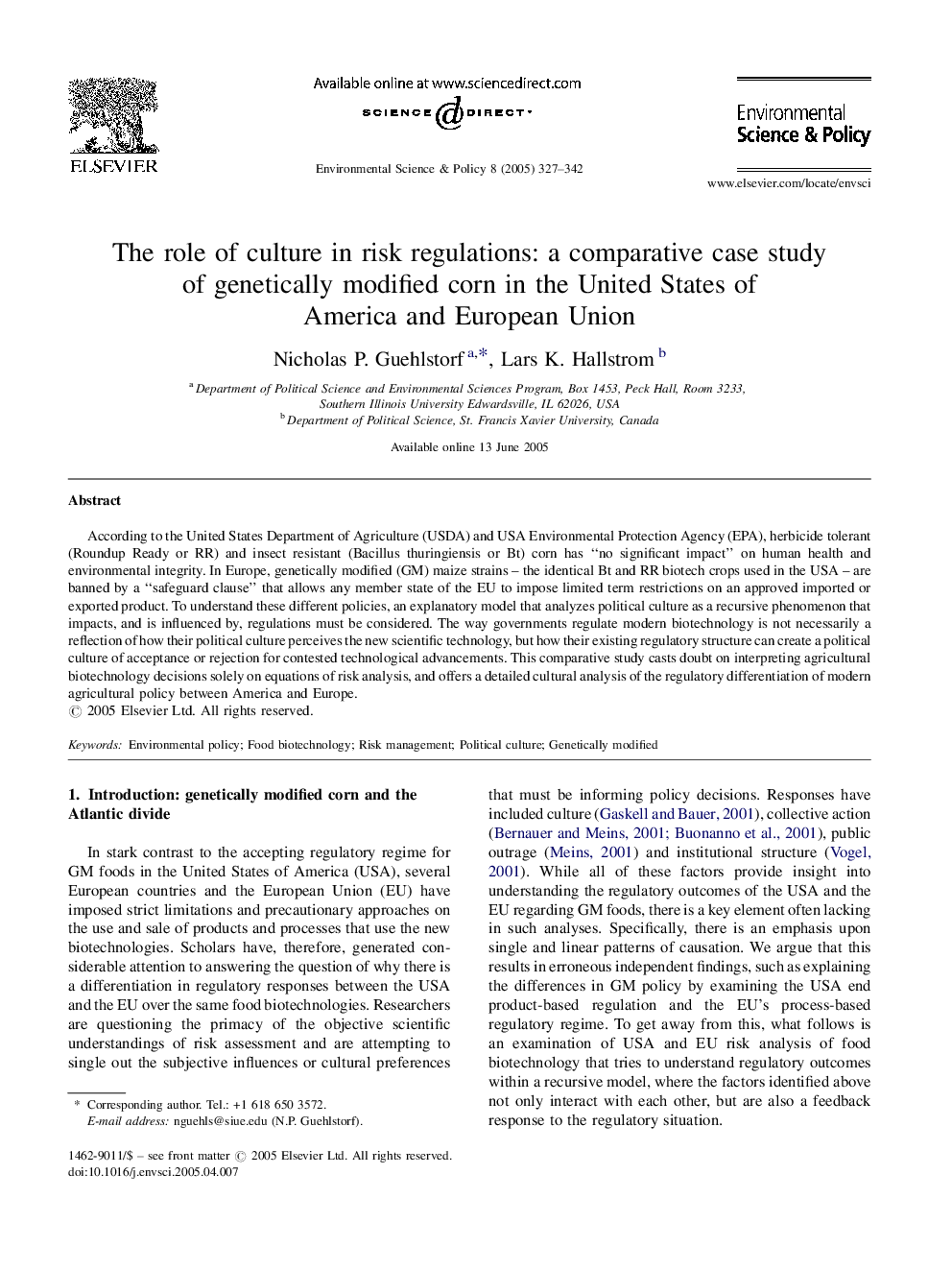| کد مقاله | کد نشریه | سال انتشار | مقاله انگلیسی | نسخه تمام متن |
|---|---|---|---|---|
| 10504650 | 946766 | 2005 | 16 صفحه PDF | دانلود رایگان |
عنوان انگلیسی مقاله ISI
The role of culture in risk regulations: a comparative case study of genetically modified corn in the United States of America and European Union
دانلود مقاله + سفارش ترجمه
دانلود مقاله ISI انگلیسی
رایگان برای ایرانیان
کلمات کلیدی
موضوعات مرتبط
مهندسی و علوم پایه
مهندسی انرژی
انرژی های تجدید پذیر، توسعه پایدار و محیط زیست
پیش نمایش صفحه اول مقاله

چکیده انگلیسی
According to the United States Department of Agriculture (USDA) and USA Environmental Protection Agency (EPA), herbicide tolerant (Roundup Ready or RR) and insect resistant (Bacillus thuringiensis or Bt) corn has “no significant impact” on human health and environmental integrity. In Europe, genetically modified (GM) maize strains - the identical Bt and RR biotech crops used in the USA - are banned by a “safeguard clause” that allows any member state of the EU to impose limited term restrictions on an approved imported or exported product. To understand these different policies, an explanatory model that analyzes political culture as a recursive phenomenon that impacts, and is influenced by, regulations must be considered. The way governments regulate modern biotechnology is not necessarily a reflection of how their political culture perceives the new scientific technology, but how their existing regulatory structure can create a political culture of acceptance or rejection for contested technological advancements. This comparative study casts doubt on interpreting agricultural biotechnology decisions solely on equations of risk analysis, and offers a detailed cultural analysis of the regulatory differentiation of modern agricultural policy between America and Europe.
ناشر
Database: Elsevier - ScienceDirect (ساینس دایرکت)
Journal: Environmental Science & Policy - Volume 8, Issue 4, August 2005, Pages 327-342
Journal: Environmental Science & Policy - Volume 8, Issue 4, August 2005, Pages 327-342
نویسندگان
Nicholas P. Guehlstorf, Lars K. Hallstrom,